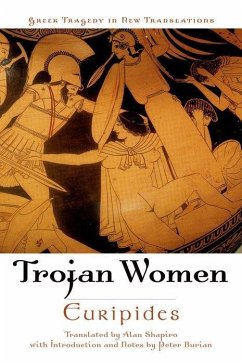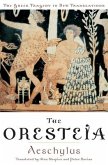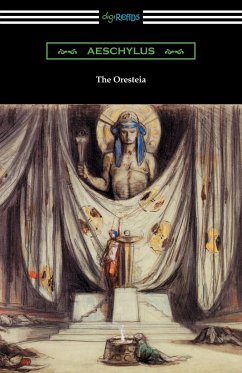"The Greek Tragedy in New Translations" series is based on the conviction that only translators who write poetry themselves, or who work in collaboration with poets, can properly re-create the celebrated and timeless tragedies of the great Greek writers. These new translations are more than faithful to the original text, going beyond the literal meaning in order to evoke the poetic intensity and rich metaphorical texture of the Greek language. "The Trojan Women" describes with unparalleled intensity the horrific brutality that both women and children undergo at the end of the Trojan War, but in the end it is a play that insists on the victory of spirit amid the horrors created by gods and men. Poet and English professor, Alan Shapiro, together with noted Greek scholar, translator, and Classics professor, Peter Burian, bring into their own words the Aeschylean vision of a world fraught with spiritual and political tensions, disordered by an irrational war.
Among surviving Greek tragedies only Euripides' Trojan Women shows us the extinction of a whole city, an entire people. Despite its grim theme, or more likely because of the centrality of that theme to the deepest fears of our own age, this is one of the relatively few Greek tragedies that regularly finds its way to the stage. Here the power of Euripides' theatrical and moral imagination speaks clearly across the twenty-five centuries that separate our world from his. The theme is really a double one: the suffering of the victims of war, exemplified by the woman who survive the fall of Troy, and the degradation of the victors, shown by the Greeks' reckless and ultimately self-destructive behavior. It offers an enduring picture of human fortitude in the midst of despair. Trojan Women gains special relevance, of course, in times of war. It presents a particularly intense account of human suffering and uncertainty, but one that is also rooted in considerations of power and policy, morality and expedience. Furthermore, the seductions of power and the dangers both of its exercise and of resistance to it as portrayed in Trojan Women are not simply philosophical or rhetorical gambits but part of the lived experience of Euripides' day. And their analogues in our own day lie all too close at hand. This new powerful translation of Trojan Women includes an illuminating introduction, explanatory notes, a glossary, and suggestions for further reading.
Hinweis: Dieser Artikel kann nur an eine deutsche Lieferadresse ausgeliefert werden.
Among surviving Greek tragedies only Euripides' Trojan Women shows us the extinction of a whole city, an entire people. Despite its grim theme, or more likely because of the centrality of that theme to the deepest fears of our own age, this is one of the relatively few Greek tragedies that regularly finds its way to the stage. Here the power of Euripides' theatrical and moral imagination speaks clearly across the twenty-five centuries that separate our world from his. The theme is really a double one: the suffering of the victims of war, exemplified by the woman who survive the fall of Troy, and the degradation of the victors, shown by the Greeks' reckless and ultimately self-destructive behavior. It offers an enduring picture of human fortitude in the midst of despair. Trojan Women gains special relevance, of course, in times of war. It presents a particularly intense account of human suffering and uncertainty, but one that is also rooted in considerations of power and policy, morality and expedience. Furthermore, the seductions of power and the dangers both of its exercise and of resistance to it as portrayed in Trojan Women are not simply philosophical or rhetorical gambits but part of the lived experience of Euripides' day. And their analogues in our own day lie all too close at hand. This new powerful translation of Trojan Women includes an illuminating introduction, explanatory notes, a glossary, and suggestions for further reading.
Hinweis: Dieser Artikel kann nur an eine deutsche Lieferadresse ausgeliefert werden.










